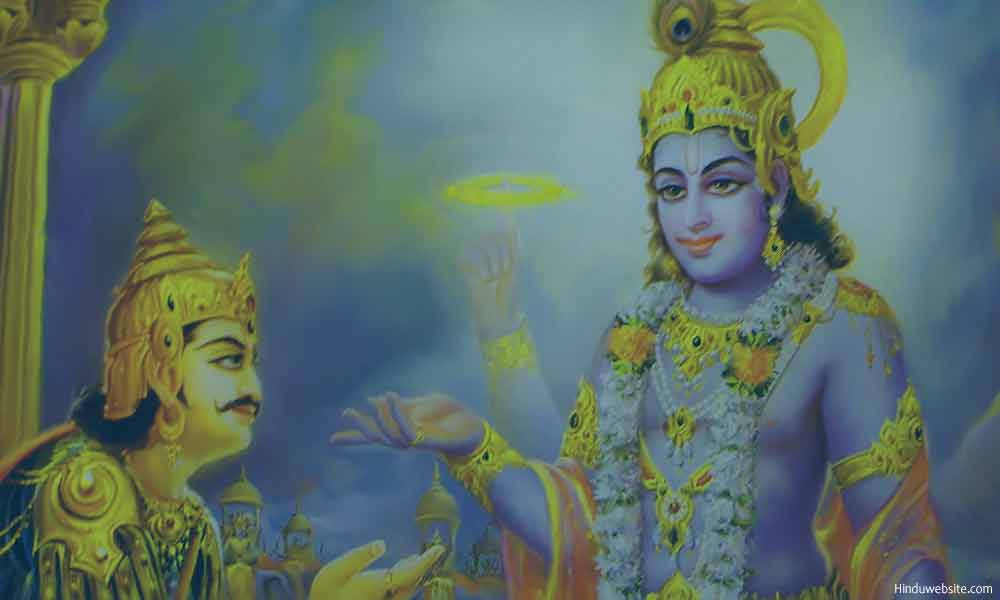
The Difference Between Good and Evil People

Notes: I have translated the Bhagavadgita twice. The first one was a loose translation. The second one was a word to word translation with a detailed commentary. The commentary is however different from what you will find here. In this section I will share with you my thoughts about the knowledge, philosophy and wisdom of the Bhagavadgita as I understand it from my perspective. Jayaram V
Human beings have composite personalities since they possess many natural tendencies which make their behavior rather unpredictable. As the Bhagavadgita states, humans beings are motivated by their predominant gunas. Therefore, it may be too simplistic to categorize people into good and bad or evil. However, sometimes we need simple definitions and commonsense approach to make sense of the world or look beyond the exceptions and the complexity which experience everyday. We do not have to oversimplify human nature, but we need to know what type of people we interact with and how they may affect our lives.
What distinguishes good people from the evil ones? Most people can discern the difference between good and evil. If they are careful and pay attention, they can detect an imminent threat or an evil source within them or around them when it is present. By observing a person's behavior, they can know whether the person is of sound character and trustworthy or not. There is one fundamental difference between the good and evil nature. It has been amply illustrated in the Bhagavadgita in the chapter which deals with divine and demonic qualities.
The good ones show moderation and restraint in their thoughts and actions, whereas the evil ones go to the extremes. In the minds of evil people, even a simple problem may become blow up into a catastrophe and consume all their passion attention. It is easy to provoke them and incur their wrath or enmity since they are driven by fear and anger rather than compassion and friendliness.
Good people are hesitant to initiate a fight even for a good cause, since they can foresee the consequences and how much hurt it may cause, whereas the evil ones are always eager to start a fight with or without a cause since they are selfish and egoistic and do not want to lose an opportunity to control and dominate others by showing strength and power or importance. Hence, they are easily provoked and resort to quarrel or fight if they perceive any threat or opposition. Because of it, their behavior becomes a problem for those who live in their. They rarely enjoy peace or stability since they have to cope with the ever increasing demands for compliance and submission and frequent mood swings and temper tantrums. If both people in a relationship are evil, you can expect an even more serious problem and bitter fights.
Arjuna had every good reason to fight for a good cause, but he was reluctant. Duryodhana and his brothers were the instigators. Despite sane advice from the elders of their family, They wanted to fight and settle their differences through aggression. They had many opportunities to enter a compromise and avoid the war, but they were reluctant to negotiate a peaceful settlement. When evil people are raring to fight, battles are inevitable. When they want to suppress you or destroy you, you have to fight them and defend yourself even if you love peace. The consequences of any war are always unpleasant, and troublesome to those who have compassion and love for others. Therefore sensitive people like Arjuna always find it troubling if they are drawn into any conflict and forced to take a stand.
Suggestions for Further Reading
- The Wisdom of the Bhagavadgita, Main Page
- The Wisdom of the Upanishads, Main Page
- The Bhagavad-Gita Essays and Translations
- An Introduction To The Bhagavad-Gita And Its Three Secrets
- Why to Study the Bhagavadgita Parts 1 to 4
- The Abbreviated Bhagavadgita
- The Problem of Maya Or Illusion and How To Deal With It
- The Problem of Maya Or Illusion and How To Deal With It
- The Bhagavadgita, Philosophy and Concepts
- The Many Gods and Goddesses of Hinduism
- Divine Qualities Of A True Worshipper Of God
- The Bhagavadgita on Karma, the Law of Actions
- Maya, The Grand Illusion Or The Delusion Of The Mind
- Aspects, Emanations, Incarnations and Forms of God Vishnu
- Dvaita or Advaita What is the Truth?
- Symbolism in the Bhagavadgita
- The Truth About Karma
- Meaning and Definition of Bhagavan
- Brahman the Supreme Universal Lord of All
- What is Bhakti or Devotion?
- Bhakti Marg, the Path of Devotion
- History and information about Mathura and Vrindavan Temples
- True Devotion and Qualities of a True Devotee
- Essays On Sorrow And Its Spiritual Significance
- The Yoga of Knowledge or the Samkhya Yoga, Verses and Commentary by Jayaram V
- Essays On Dharma
- Esoteric Mystic Hinduism
- Introduction to Hinduism
- Hindu Way of Life
- Essays On Karma
- Hindu Rites and Rituals
- The Origin of The Sanskrit Language
- Symbolism in Hinduism
- Essays on The Upanishads
- Concepts of Hinduism
- Essays on Atman
- Hindu Festivals
- Spiritual Practice
- Right Living
- Yoga of Sorrow
- Happiness
- Mental Health
- Concepts of Buddhism
- General Essays